The red dirt road to Robertsport stretched out ahead of us, seemingly endless; we were both stuffed into the space for one in the front of a share-taxi. I spent most of the ride on the edge of my seat. Partly because I was sharing it with Oyv and he always gets most of the room. And partly because we’d noticed the driver had a gun stuck in the waistband of his jeans.
We’d spent a few days in Monrovia checking out the city and making plans. We had to track down Oyv’s luggage – it’s not as though the airline was going to do it for us. So we went to Royal Air Maroc’s office and asked about it. The second time around, Oyv spotted his backpack sitting in a pile of forlorn baggage and dragged it out. A security guard made him sign for it and then rubbed his fingers together, asking for a tip. Considering the airline didn’t even let us know the bag was in the country, let alone drop it off at our guesthouse, we just ignored him and left.
The airline’s office is in Sinkor, an affluent part of Monrovia. The wide streets are lined with big mansions behind big walls, and sandy side streets lead down to the city beaches. Sinkor is home to the UN headquarters, Embassies and NGOers alike, and the cafes and restaurants who cater to them. Like this doughnut place we stumbled on in the lobby of a big hotel:
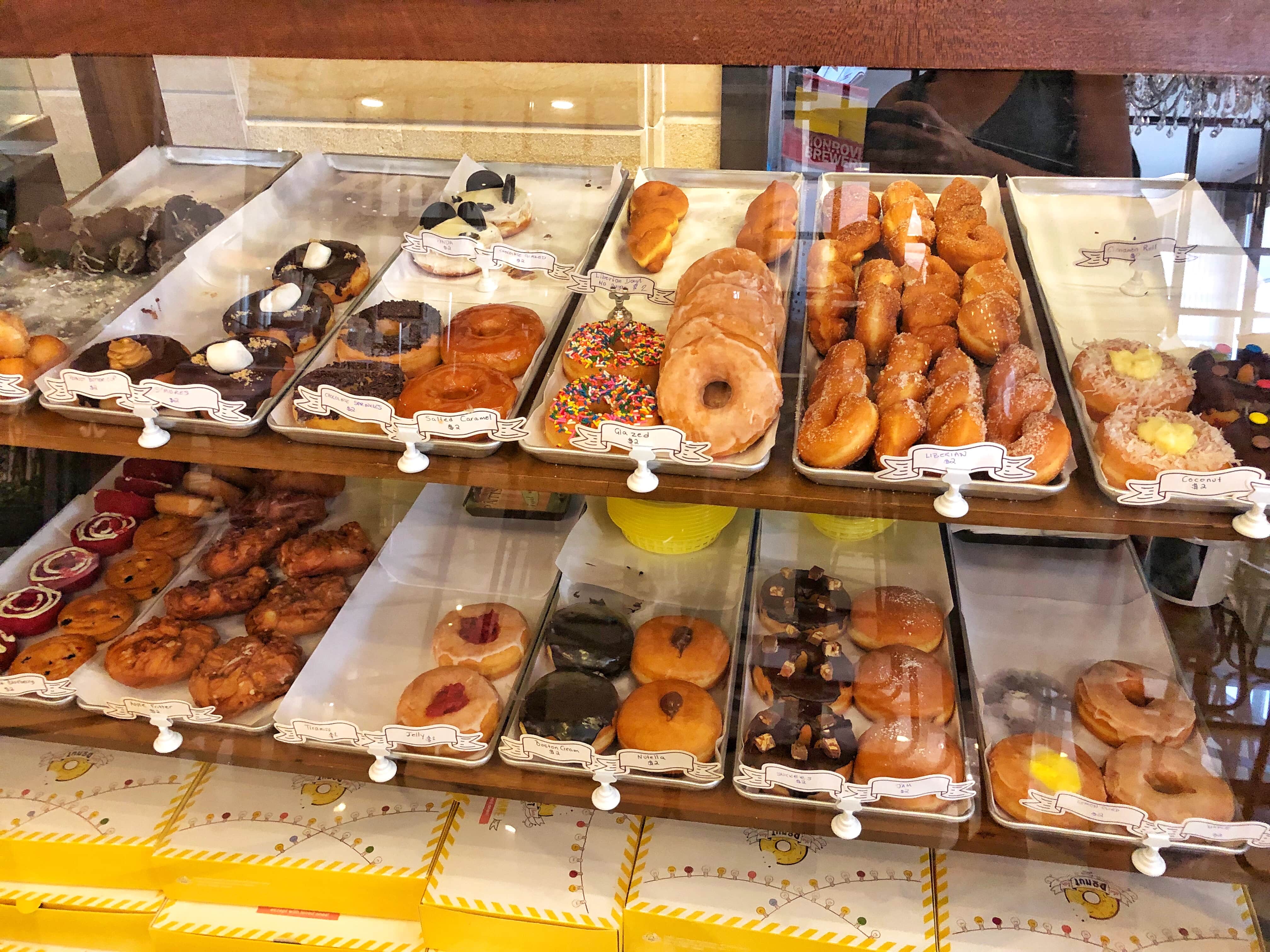
There’s also a large Lebanese population. There are a lot of Lebanese people in West Africa, and that’s just great because they tend to bring with them well-stocked supermarkets and restaurants. We ate regularly at Diana’s, a casual place in our own neighbourhood serving up great hummus and other delicious stuff we’d enjoyed eating endlessly in Lebanon last summer.
Monrovia’s a bit hectic in places.
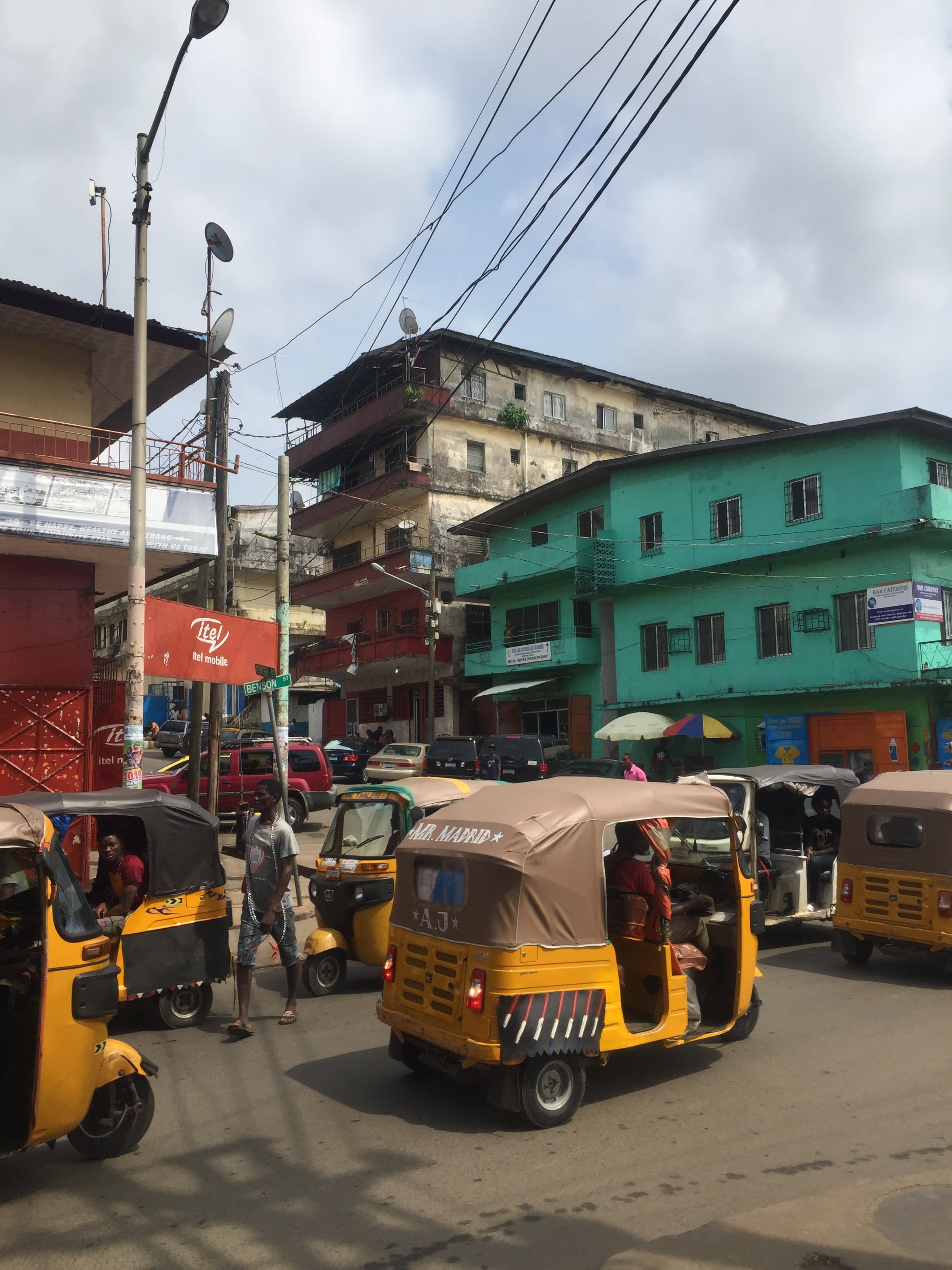
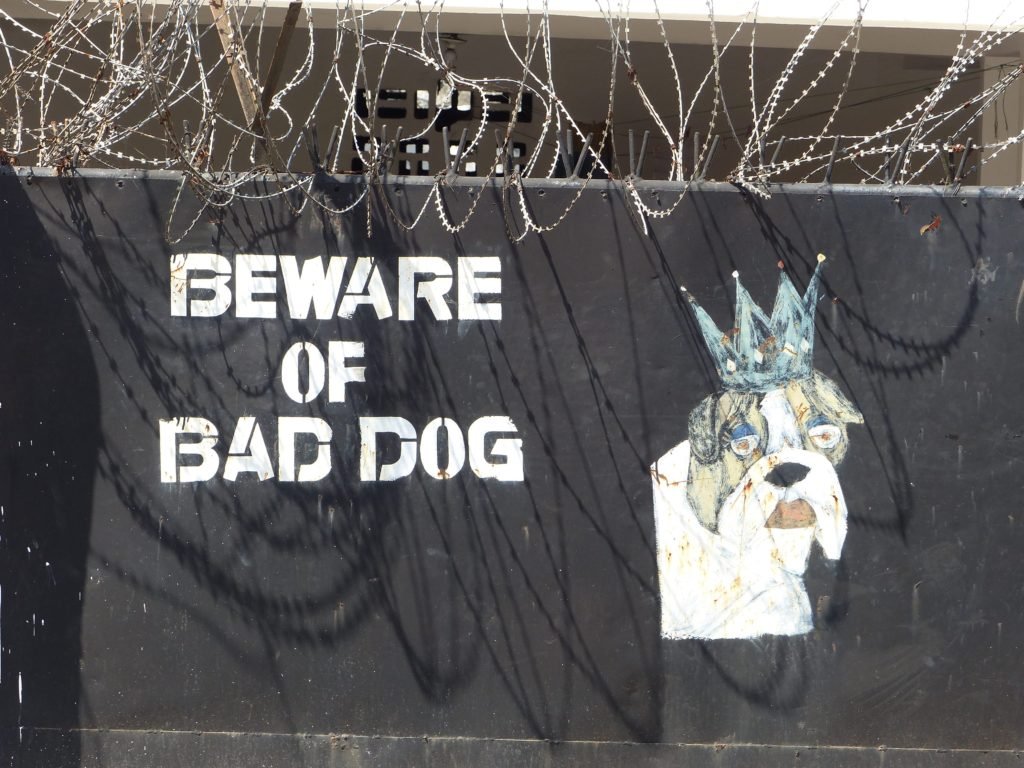
It can feel borderline intense at night so we usually ate dinner quite early and tried to be inside not long after dark. Eating dinner can also be intense for Oyv if there is salad involved, as he tends to worry the vegetables might have been washed in dodgy water – while I tend to worry more about getting mugged on the way home after eating said salad. I can’t speak to street crime not having experienced any but almost every time either one of us had our phone out in hand a local warned us to put it away.
It was time to hit the road, so we set off to pick up a sharetaxi for Robertsport. Nothing says ‘total chaos’ like trying to find the right car in a West African transport hub which is usually a marketplace and/or a traffic junction.
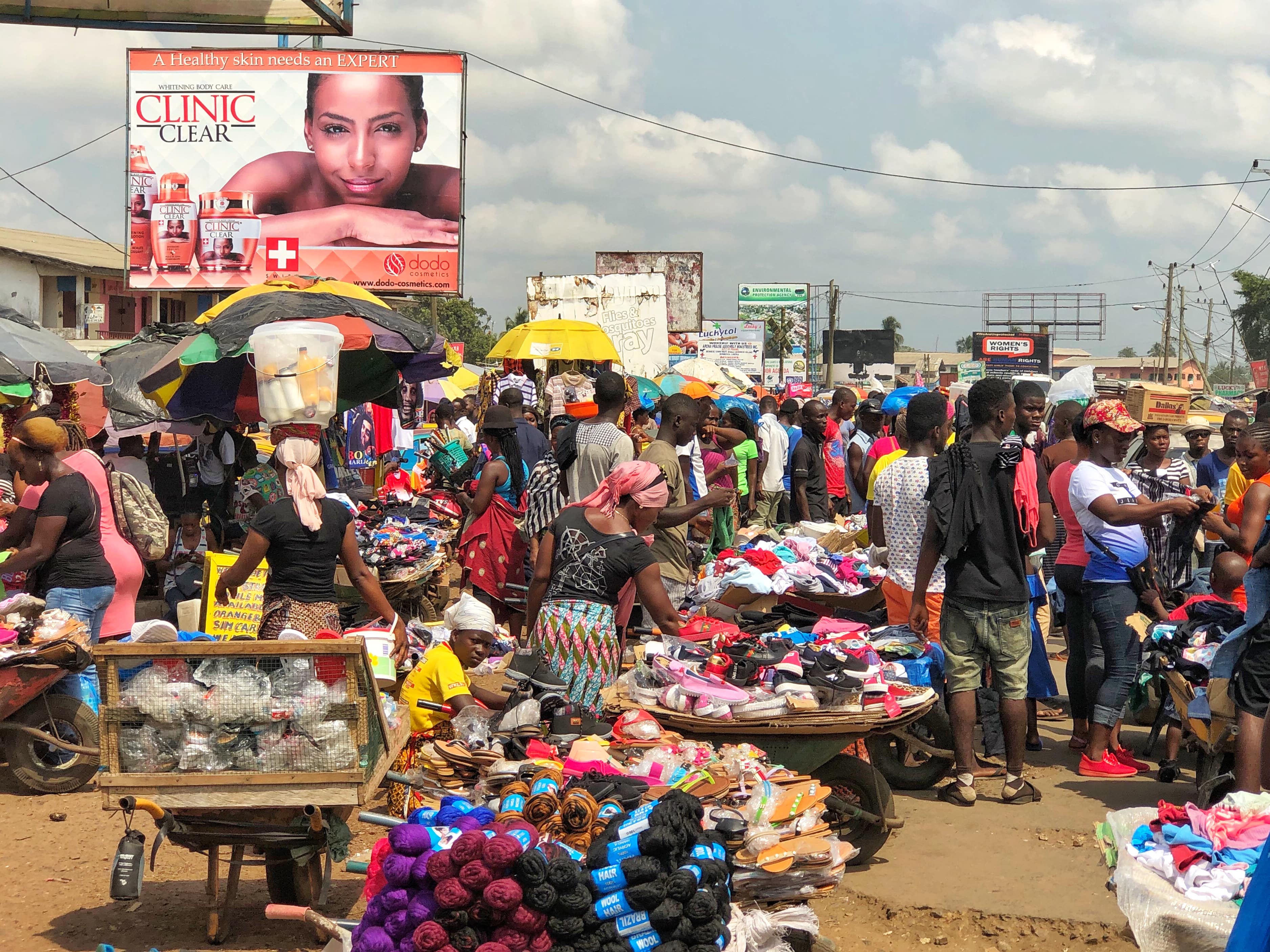
Having found a taxi, the waiting starts. Cars don’t depart until they are full to say the least. I sat down nearby, hoping that the two huge smelly fish – barracuda, maybe? – lying in the dirt and staring up at me with vacant glassy eyes weren’t waiting for the same car.
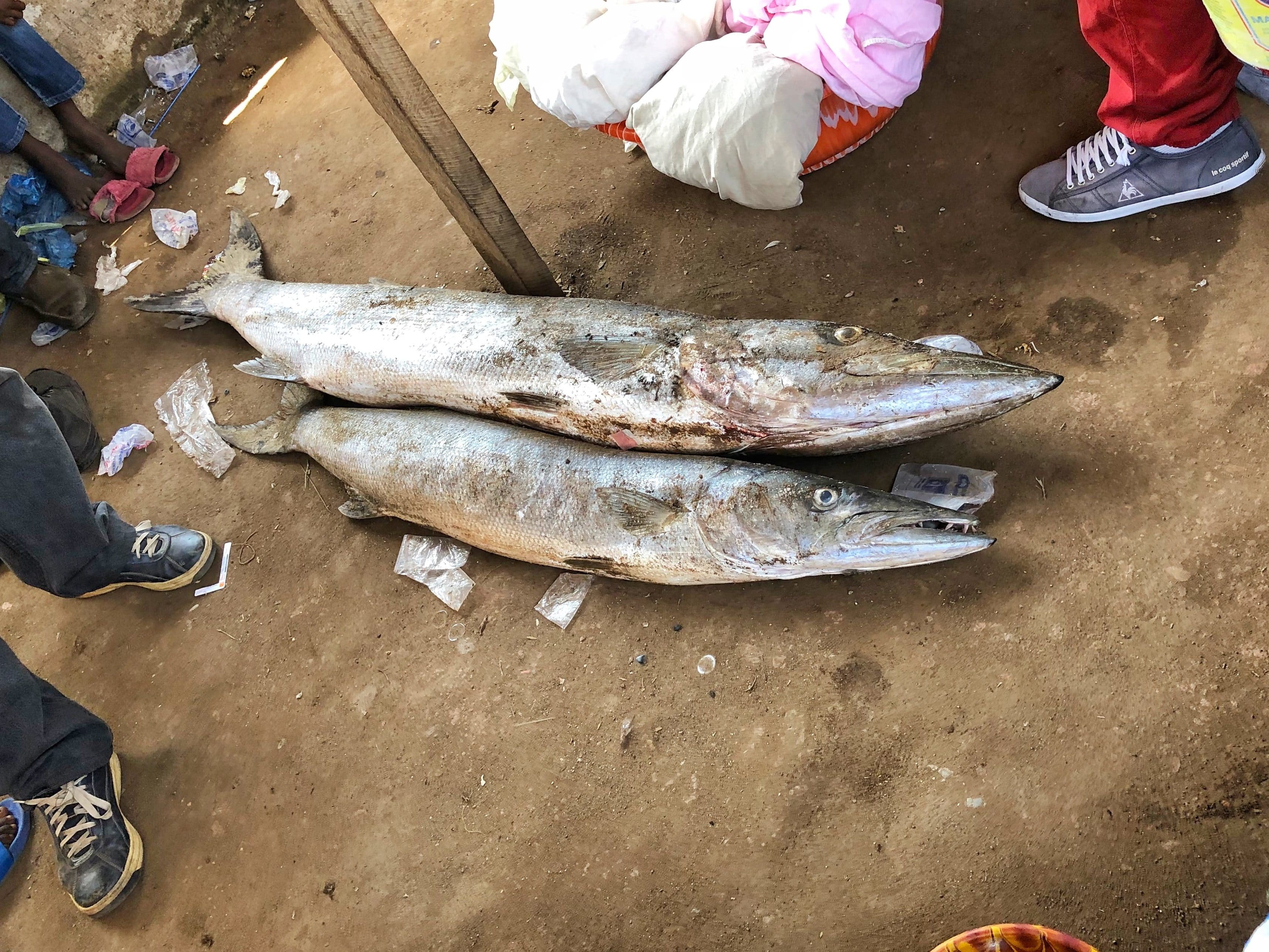
Oyv and I snagged the front passenger seat and when three hefty ladies and a skinny guy piled in the back, we were good to go (without the barracudas, thankfully). Barely thirty minutes from the city the driver crashed hard into a particularly treacherous pothole and blew a tire. We all climbed out and sat around in a field with some palm wine-drinking farmers, while the driver and the skinny guy managed to change the tire without any proper tools. Repairs done and passengers reloaded, our driver asked me to hand him a towel lying on the dashboard. He reached up to mop his forehead, and that’s when we saw the gun in his waistband. Wedged into the middle of the front seat as I was, sitting partly on the gearshift, I was pretty conscious of the fact that the gun was practically pressing into my left hip.
We’re used to guns – there’s generally a lot of military and security around here. But secretly armed cab drivers, that was a new one. Was he worried about banditry, we wondered? Or was he a bandit himself?
Whether the other passengers knew about it or not, we couldn’t tell. The mood in the car was positively buoyant. Among other possibilities the driver seemed to be a comedian. But at the first of several military checkpoints we breathed a sigh of relief: our driver suddenly produced a badge and flashed it out the window at the soldier peering in. So, he was a police officer. That explained the gun, but not the mystery of why he was also driving a cab. T.I.A and all that, but we still wondered why he saw fit to hide it in his waistband.
Cop or cabbie (or possibly comedian): we were just happy to get out of his car in Robertsport.
Robertsport is a tiny village with only two accommodation options. We moved into the Kwepunha Retreat, a surfer lodge set back from the beach in a big rambling house. Yes, this stretch of Liberia’s coastline is known for its surf and a couple of Californians established the guesthouse and a surfing school as a community initiative. We aren’t surfers but the beach in Robertsport is long, golden and ruggedly beautiful.
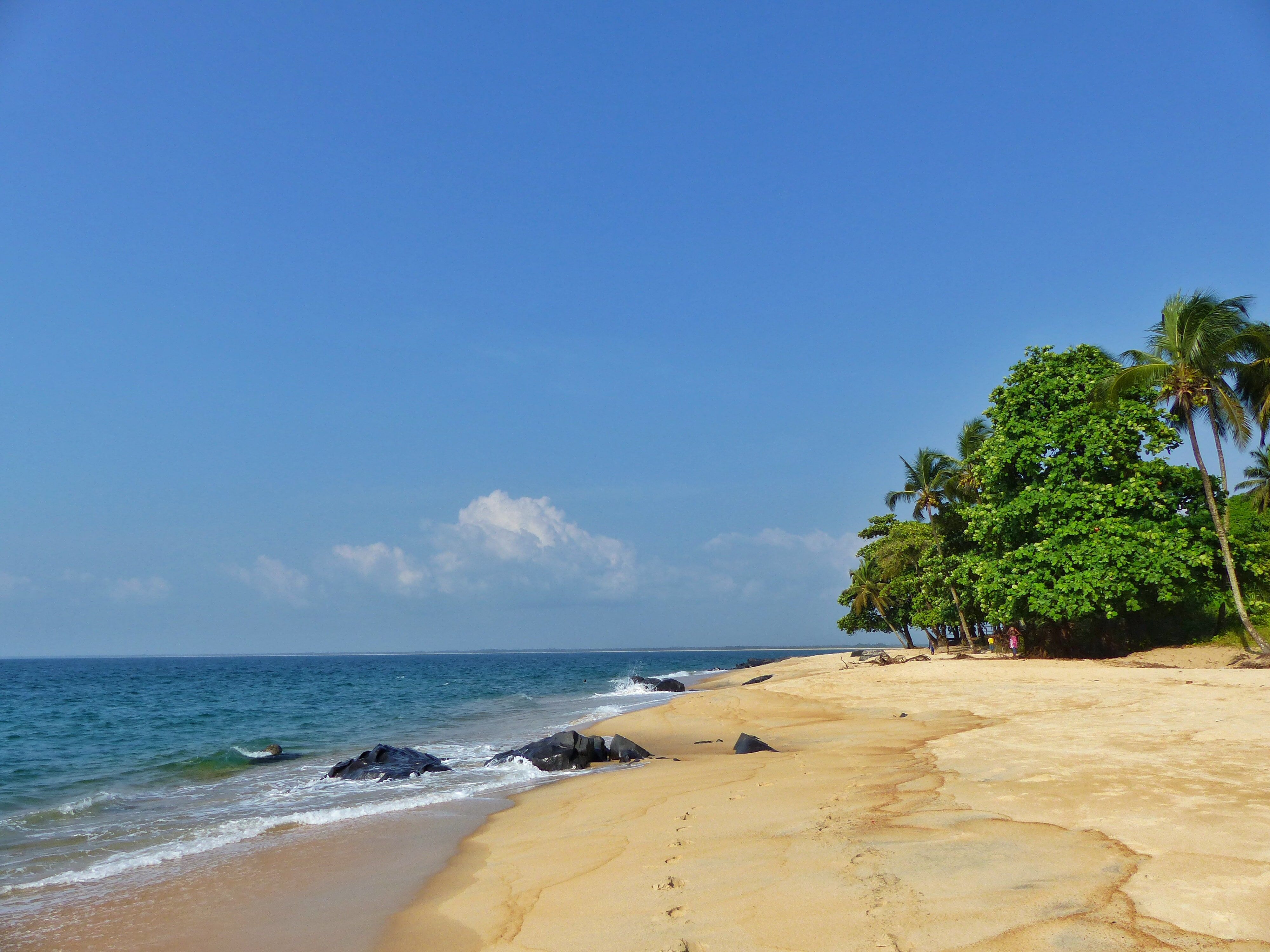
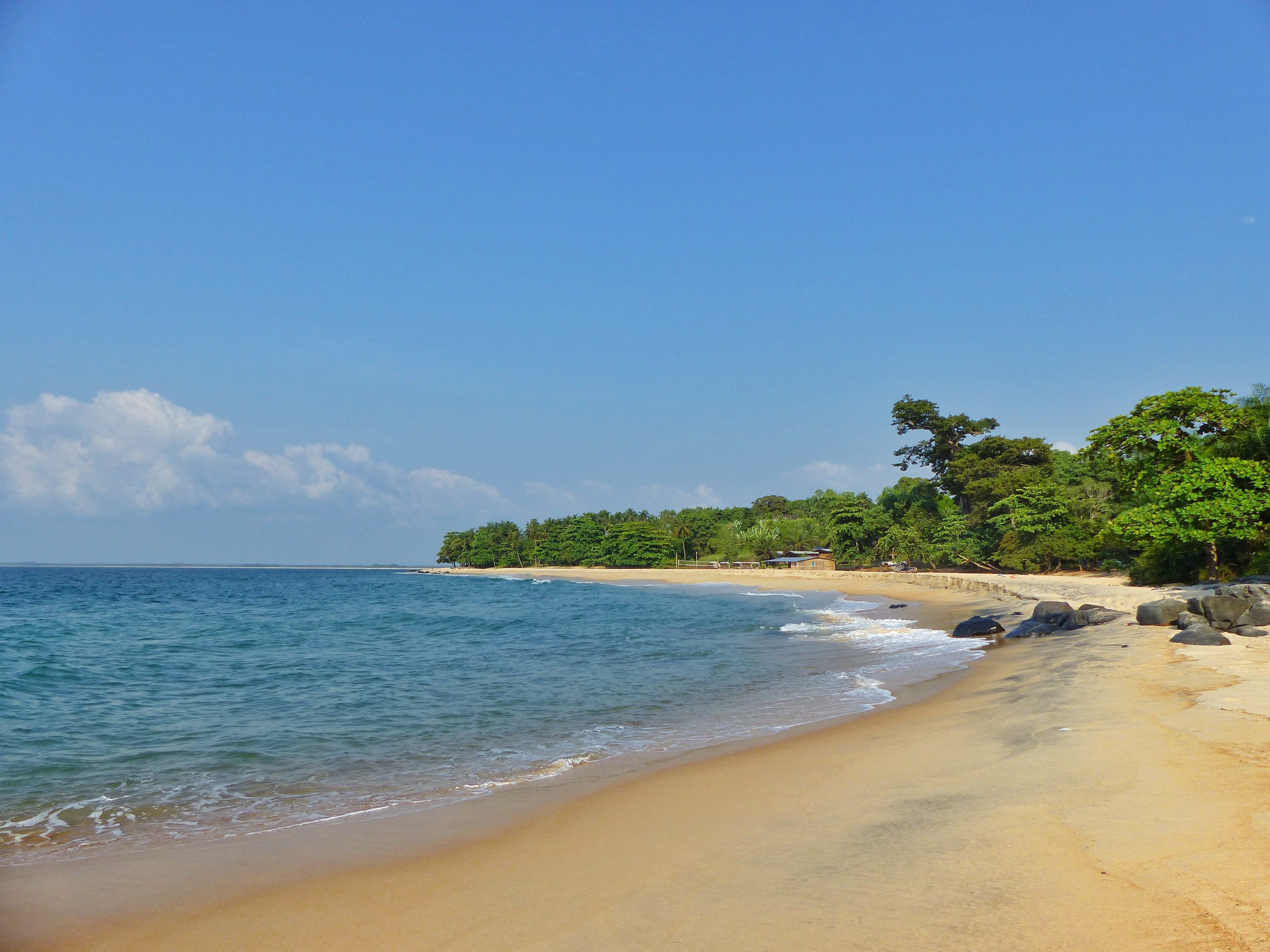
It’s also mostly empty and that’s the best kind of beach for hanging out on as far as either of us is concerned.
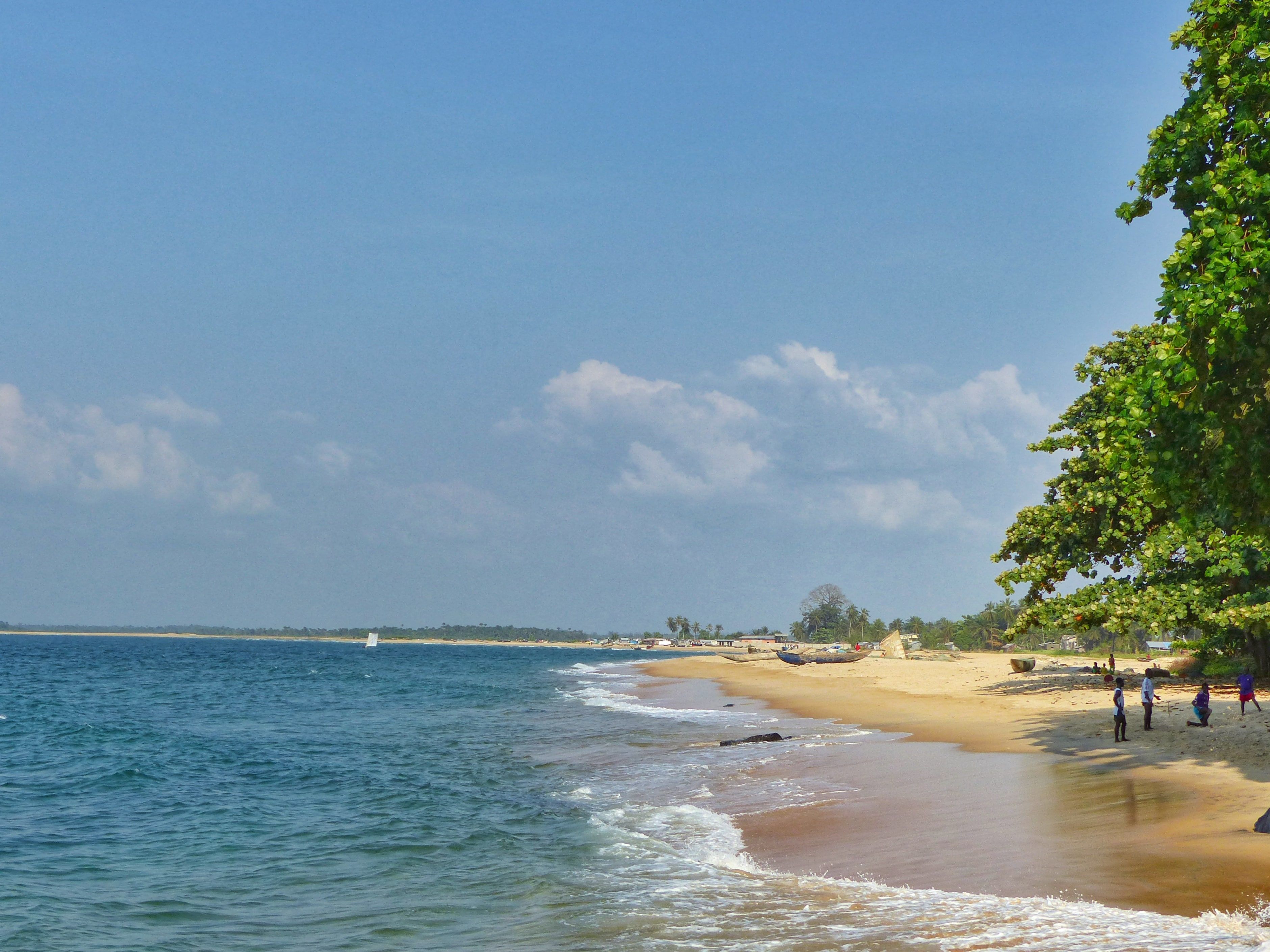
One of the guys at the lodge agreed to show us around town, and we set off for a rambling walk.
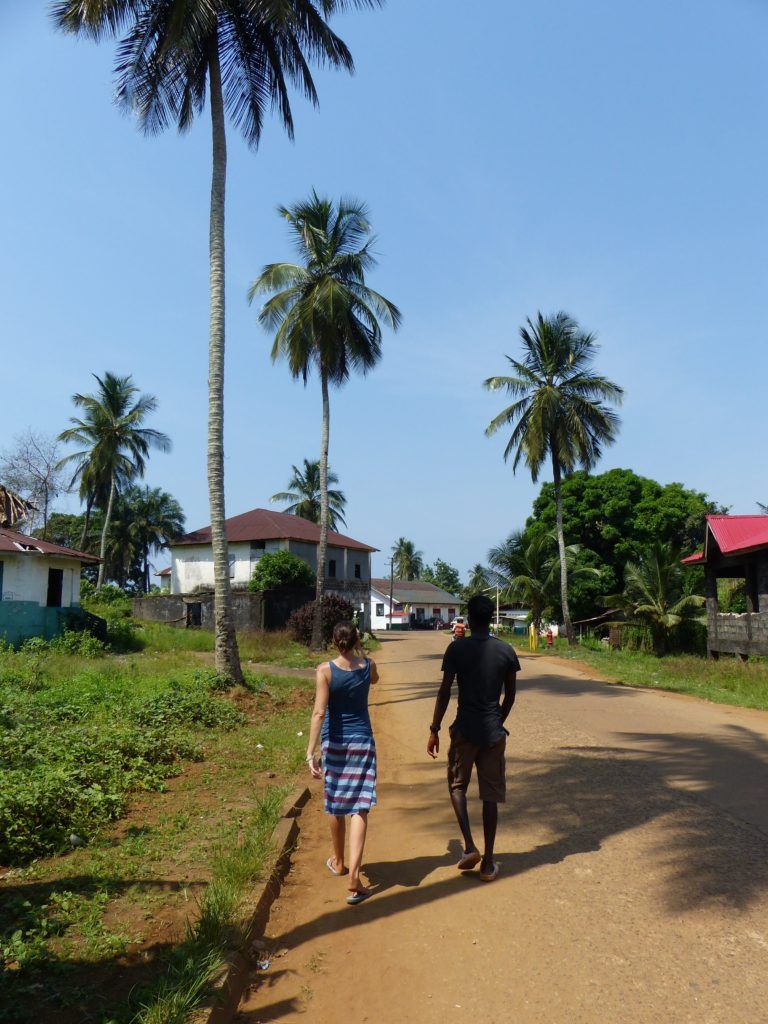
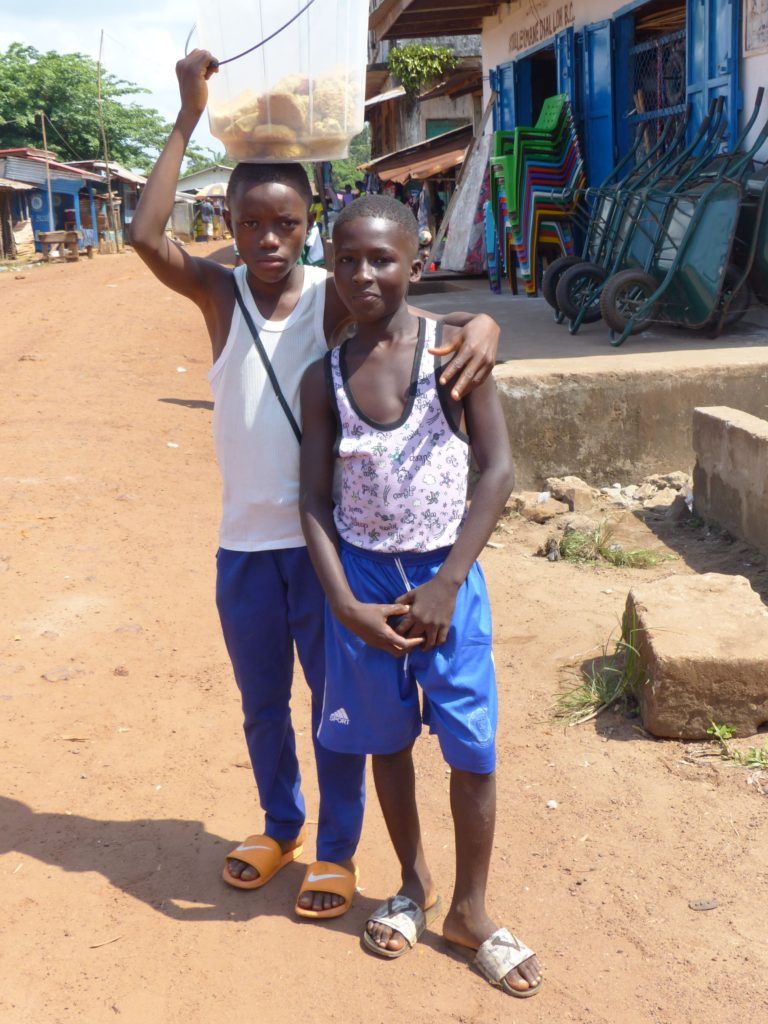
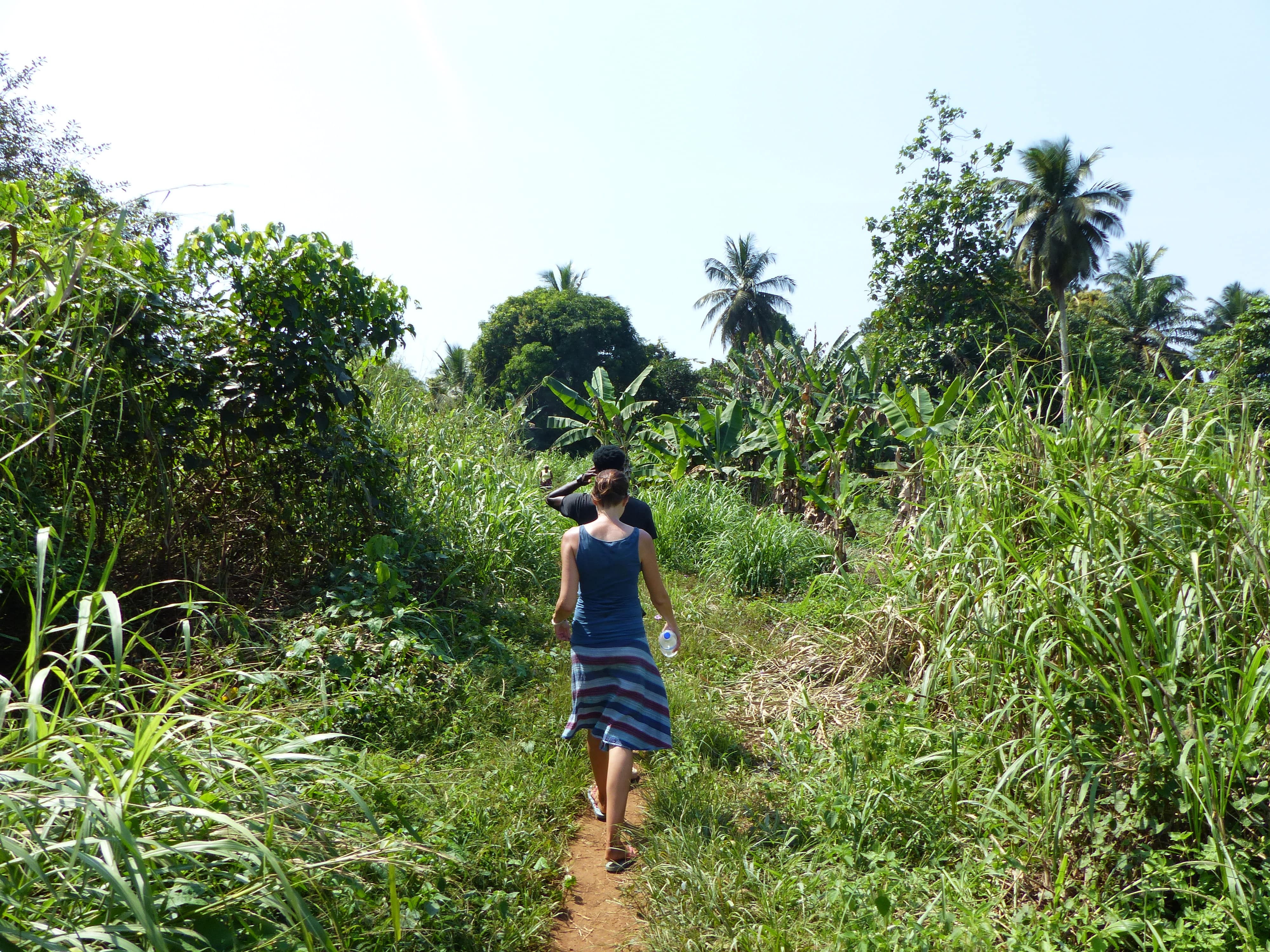
We asked our guide about the police officer moonlighting as a taxi driver. Emmanuel laughed; he knew who we were talking about. As it turns out, the driver who set our nerves on edge is a well-known police chief from a neighbouring village. Whenever he comes home for a visit he likes to take passengers to share the cost of gas, an explanation which seemed perfectly reasonable to Emmanuel and less so to us.
Emmanuel showed us the village’s mainstay, a World Bank sponsored fish processing facility. Set up in 2017 the project encourages sustainable fishing practices and provides fishermen with much-needed equipment for preserving and storing fish. With a rainy season that lasts half the year and puts a stop to most fishing, preserving the catch is critical to survival during the off-season. We looked at the boats lined up on the beach. It’s not unusual for a fisherman to remain a week or ten days at sea on one of these, fishing, eating, sleeping.
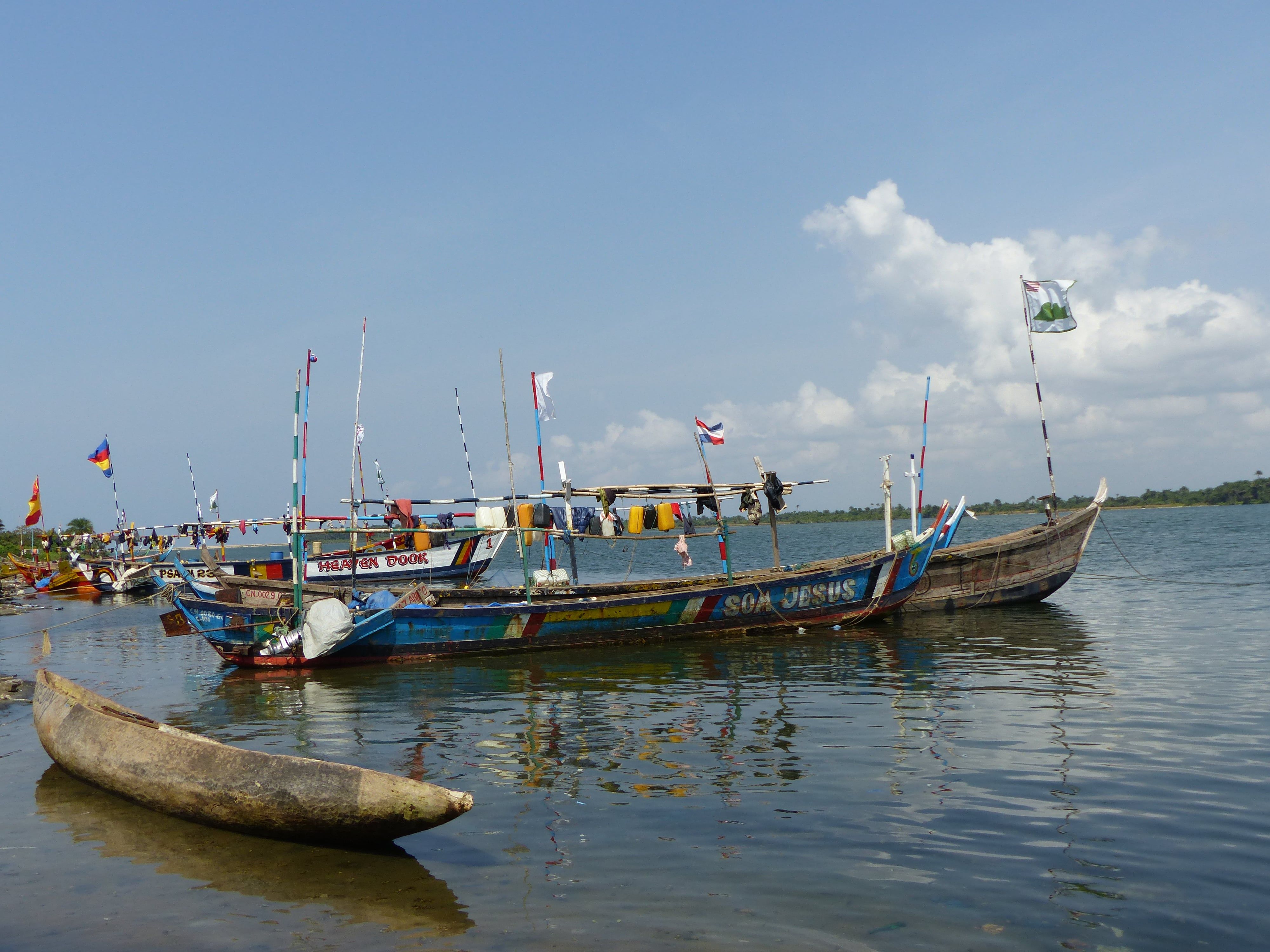
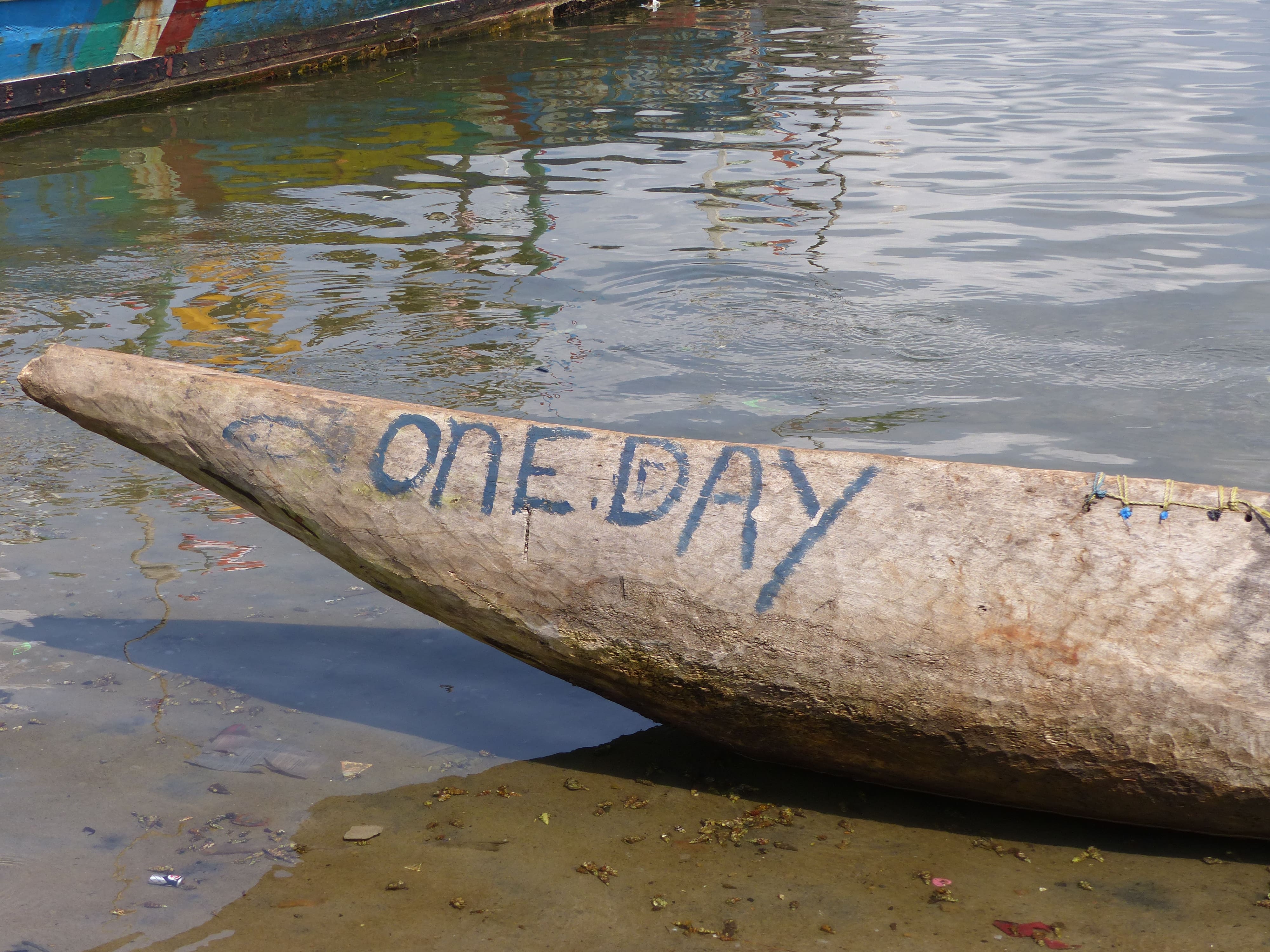
The Tubman Centre of African Culture is on the edge of town, up a steep hill. Or rather, it was: but it was abandoned and destroyed during Liberia’s civil war. This was before Emmanuel’s lifetime, and he didn’t seem bothered by the cultural ruins on his doorstep.
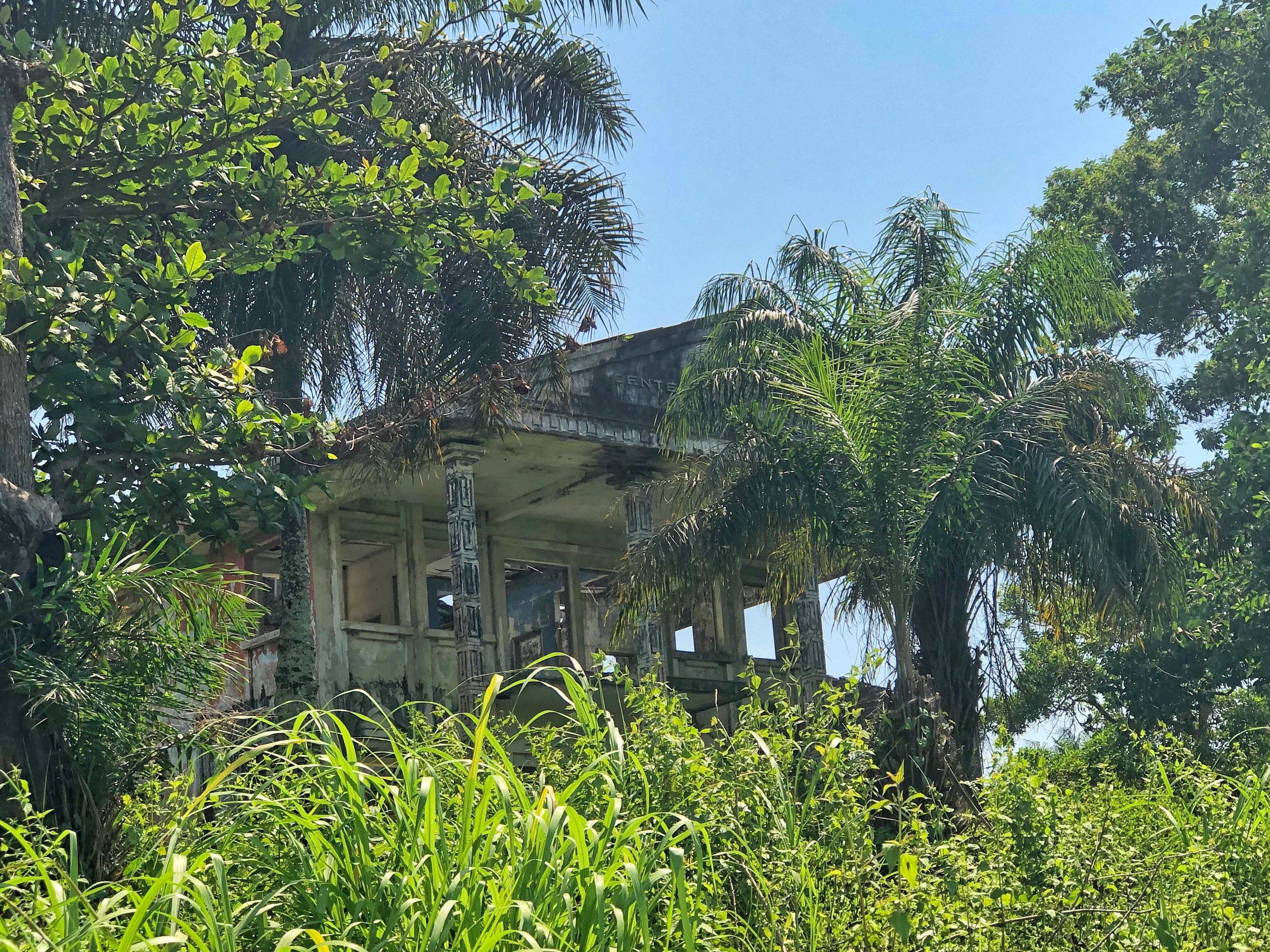
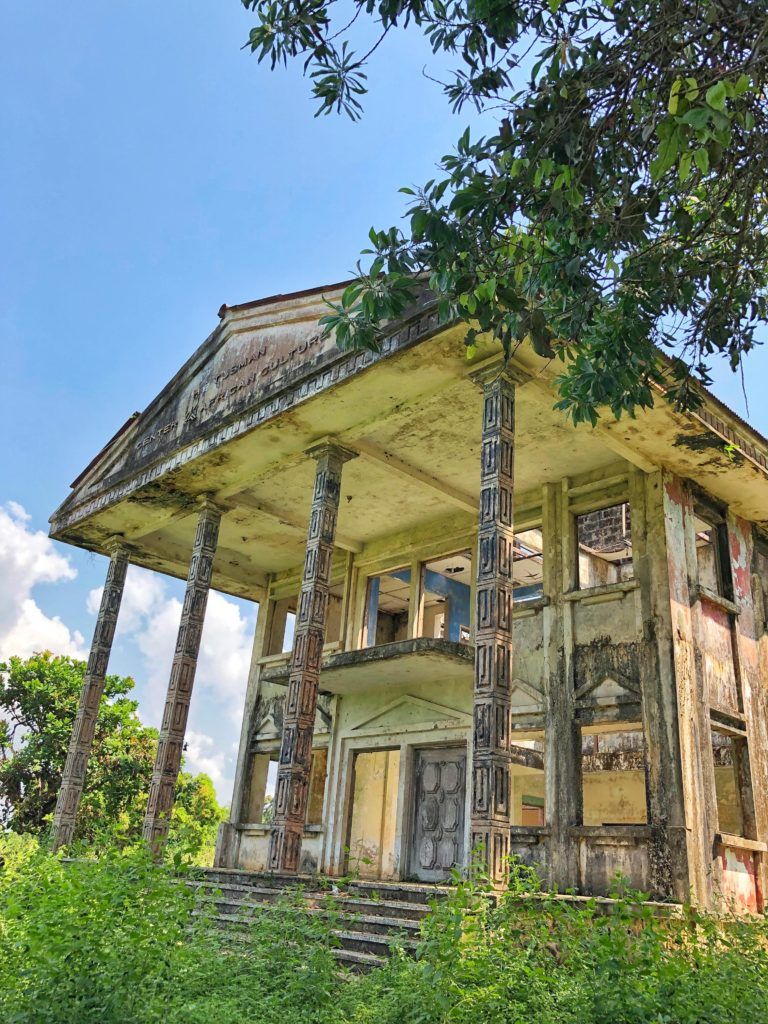
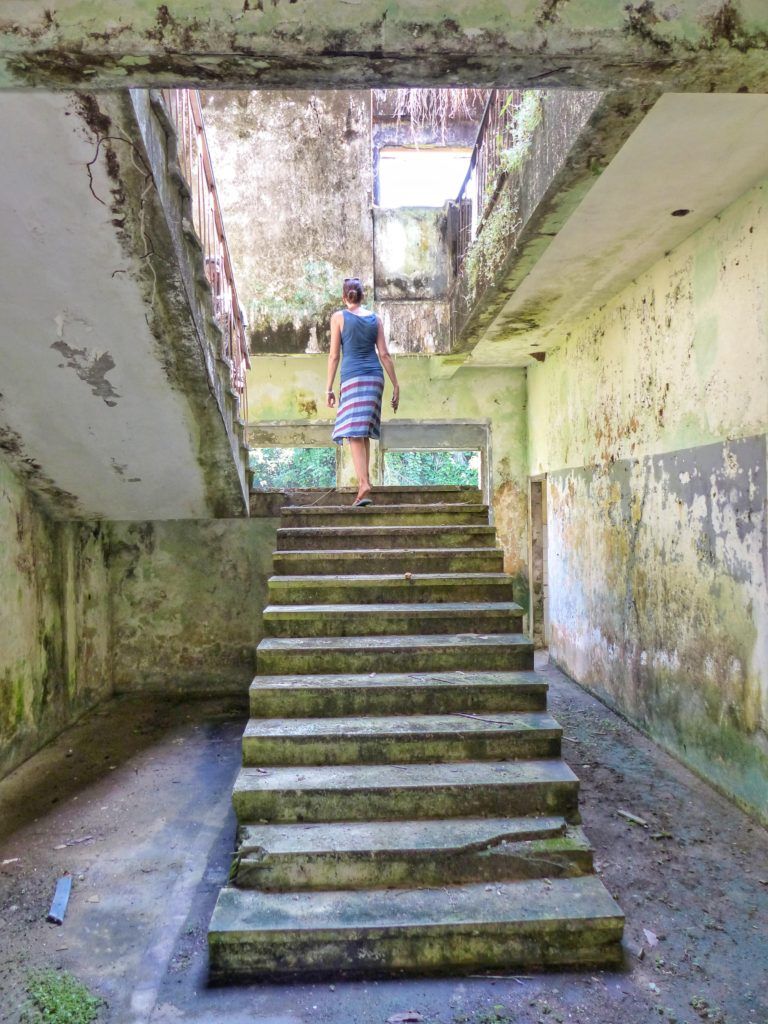
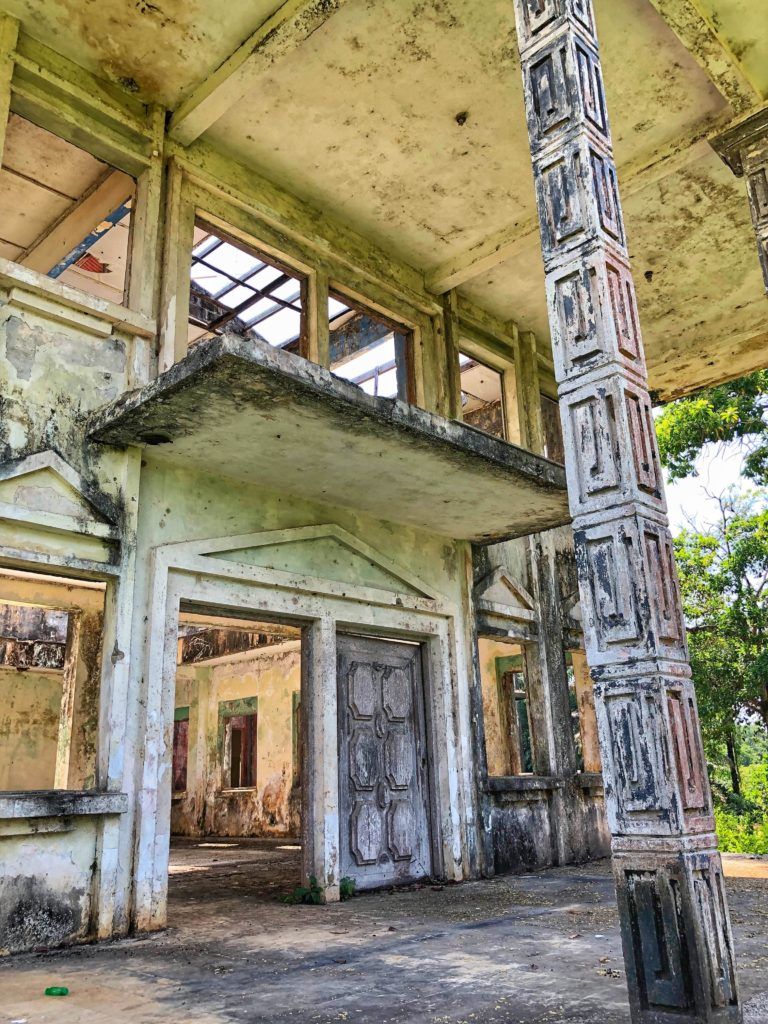
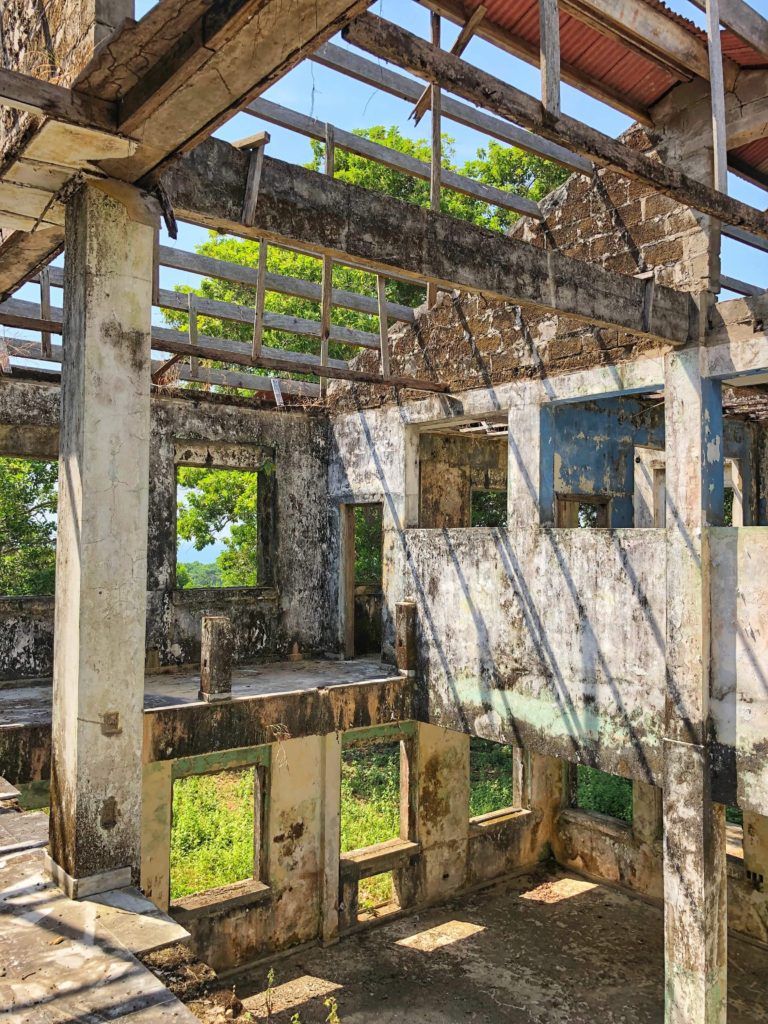
The three of us waded through waist high grass to the skeletal building’s front steps and then went inside.
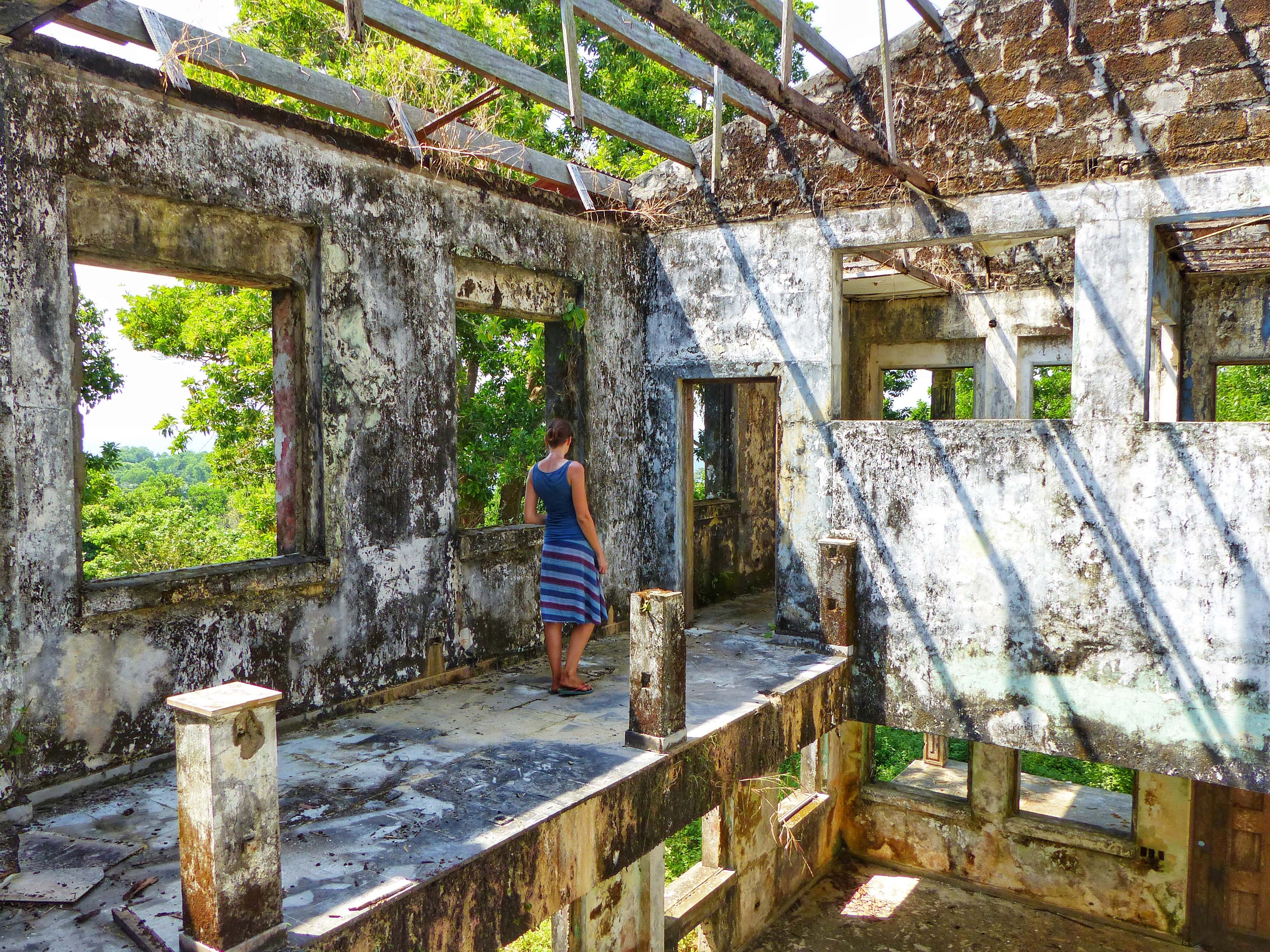
A bird fluttered past an empty window frame. ‘Is that an egret?’ I asked our guide. ‘No’, said Emmanuel, ‘It’s just a bird’.
As we walked back down the hill and the long way around to Kwepunha, a familiar car approached. Our police chief friend sped by, stuck his head out the window, waved and shouted hello.
Later on we kind of missed him on the ride out. Packed into another car full of chatty passengers, plus an extra woman in the very back with a huge tub of newly dead fish, we rattled down the dirt road. Without our taxi-driving-police-chief escort we were stopped and had to produce our passports at every checkpoint on the way – and there are plenty.
Read More
For more of our adventures (and misadventures) in Liberia, check out the rest of my stories from the road.
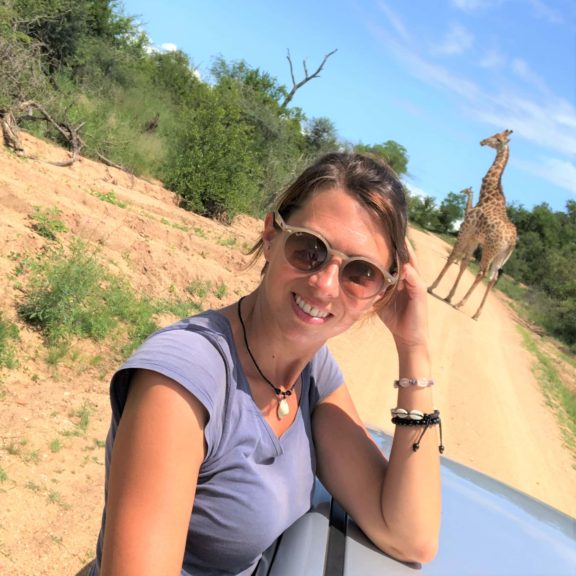
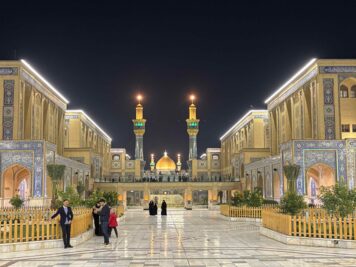
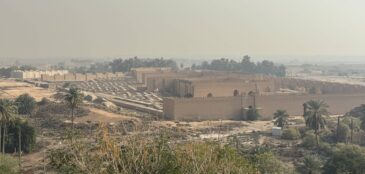
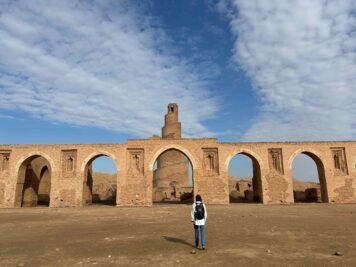
This Post Has 3 Comments
Hello!
I found you blog today -well , I think two hours ago.
I am reading and laughing.
I find it refreshing and you go to my kind of places! 😃
First time every sending message to a blogger. Not that I usually ever read or follow any. 🤔
Keep discovering and sharing your discoveries!
😁
Thanks – well I’m glad that you sent a message to me then:) There is just so much to discover in our kind of places, right?!
Pingback: Traveling Tips On Liberia – Libspot